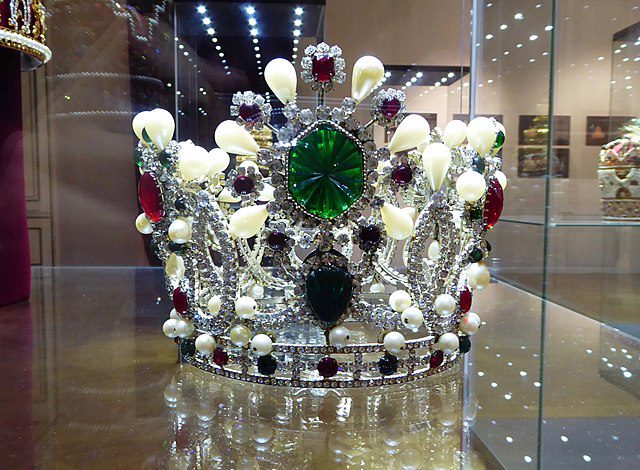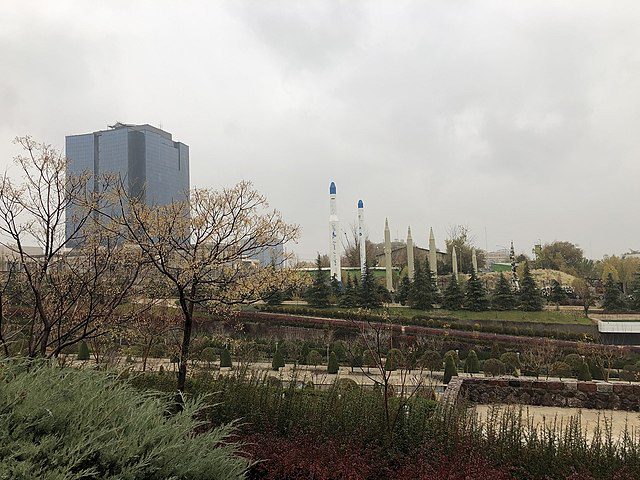Table of Contents
Discover the amazing Treasury of the National Jewels in Tehran, Iran capital, a place where some of the fanciest gems from around the world are on display for everyone to see. Back in 1937, a bunch of these jewels were used as fancy collateral for bank stuff and government debts. Then, in 1960, when the Central Bank of Iran came into play, they moved these precious gems to the Jewelry Museum in Tehran, where they still are today. It’s like a time machine showcasing cool jewels from the Safavid, Afshar, Qajar, and Pahlavi periods.
Picture a treasure trove where every piece of bling has a tale to tell. The National Jewelry Treasury is not just about showing off expensive stuff; it’s a celebration of fancy designs and old stories. These jewels used to be fancy collateral, but now they’re like guardians of Iran’s history. Come and see the amazing handiwork from Safavid times, the cool designs from Afshar, the royal vibes from Qajar days, and the modern glam from Pahlavi times. It’s not just about money; it’s about diving into the awesome history these national treasures carry with them.
Treasury of National Jewels History
Back in the old days before the Safavid Dynasty, it was a bit unclear who owned all the cool stuff in Persia. But now, the government has sorted it out and put everything in the Treasury of National Jewels Tehran. This special collection has fancy things from the Safavid, Qajar, and Pahlavi Dynasties.
Way back during the Safavid times, smart Persian business folks brought in some nice stuff from India, the Ottoman Empire, France, and Italy to the capital city, Isfahan. The kings of Persia were pretty generous too; they shared some bling with other countries as friendly gifts and sometimes got them as prizes from wars. The whole shebang got a home in the current treasury in 1955, and just four years later, it became the official property of the Central Bank of Iran.
Step into the National Jewelry Museum, and you’re not just looking at pretty things—you’re seeing bits of Persian history. Each piece has a story about trade, making friends, and winning battles, creating a cool picture of how Persia has changed over time. The museum isn’t just a place for old stuff; it’s like a time machine where jewels tell the exciting tales of a country’s way-back past.
Inside Treasury of National Jewels History
Picture this: you go down some stairs, pass a huge security door, and voila, you’re in the treasury! The first thing catching your eye is the Peacock Throne—it’s seriously stunning. But hey, there’s a bunch of other cool stuff around, and time’s ticking, so you better keep moving. As you hit the main hall, friendly guides are there, speaking English, German, French, and Arabic, ready to spill the beans on each display and what’s in it.
Get ready for a feast for the eyes—valuable rubies, rare gemstones, crowns, and tiaras that are priceless (no one can put a number on them), loads of diamonds, plus swords and shields blinged out with jewels. And right smack in the middle, you can’t miss the Sea of Light Diamond (Darya-ye Noor)—it’s the rockstar of the museum. Now, let’s talk about some VIPs in the Treasury of the National Jewels:
Sun Throne; Throne of Fath Ali Shah Qajar
Farah Pahlavi Crown Jewels
Daria-I-Noor (gigantic pink diamond)
Globe of Jewels
Kiani Crown (from Fath Ali Shah Qajar’s time)
Each of these guys has a story to tell, making your trip through the treasury a bit like stepping into a history book, only blingier.
How to Get to the Treasury of National Jewels
By Bus
Tehran public transportation is a really good choice. Catch a bus at Jomhouri Ave. or Ferdowsi Ave. stops—it’s like jumping on a city ride. Enjoy the vibe of Tehran’s streets as you head to the Treasury of National Jewels, soaking in the everyday scenes around you.
By Metro
Take the yellow subway line (number 4) to Ferdowsi Metro Station. Feel the buzz of the subway and step out ready to explore the treasure trove. It’s like a secret passage leading you to the jewels waiting underground.
On Foot
Keep it simple with a 10-minute walk from Ferdowsi Sq. Go south, and when the Central Bank building shows up, you’re there. It’s like a little journey through the city, revealing the history and treasures tucked away in the heart of Tehran.
Recommended Sightseeing Time of Treasury of National Jewels
Step into the National Jewelry Museum of Iran and get ready for a 2 to 3-hour adventure through glittering history. This place isn’t just a museum; it’s a journey into a world of sparkling stories. Take your time, wander through the halls, and let the treasures tell you tales from the past.
Working Hours of Treasury of National Jewels
If you’re eyeing a visit to the National Jewelry Treasury, here’s the scoop on when to drop by: Saturdays through Tuesdays, from 2:00 PM to 5:00 PM. During these hours, the treasury doors swing open, revealing a glittering world of history and gems. It’s a limited-time show, but from 2:00 to 5:00, you can soak up the stories behind each jewel, basking in their beauty. Plan your visit right, and you’ll catch a glimpse of the nation’s treasures shining in the afternoon light.
So, mark your calendar and make the most of these hours to dive into the dazzling tales woven into the jewels at the Treasury of National Jewels.
Age Limit and Security Insights
Here’s the lowdown for your trip to the Treasury of National Jewels. If you’ve got kiddos under 12, unfortunately, they won’t be able to join the adventure. And hey, as you stroll through the displays, keep a bit of distance. The museum takes its security seriously and has some high-pitched alarms ready to go off if you get too close. So, just give the jewels their space, and you’ll avoid an impromptu alarm concert. These simple tips will help you enjoy your visit hassle-free!
Where to East Near Treasury of National Jewels
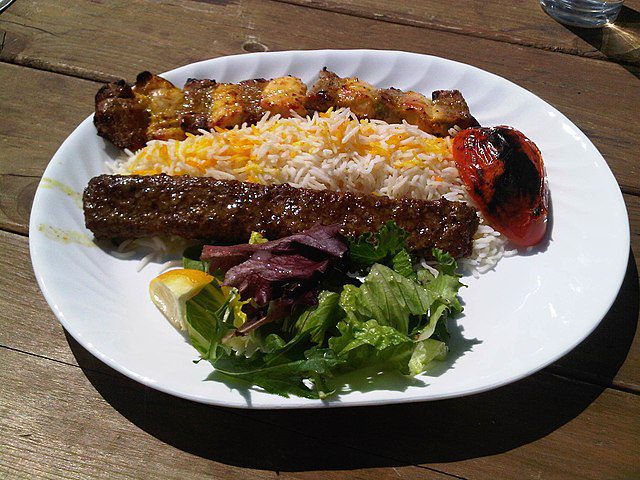
Embarking on a food adventure near the National Jewelry Museum of Iran is a treat for your taste buds. Among Tehran best restaurants, here are some closer spots:
Tarighat Restaurant
For a taste of tradition, check out Tarighat Restaurant in north Laleh Zar. This spot offers a mix of classic Iranian cuisine in a welcoming setting, creating a unique dining experience that’s both flavorful and cultural.
Tameshk
On Imam Khomeini Street, you’ll find the speedy and tasty Tameshk, a fast-food spot perfect for those who want a quick and enjoyable dining experience.
Delion
At Valiasr Crossroads, indulge in the diverse menu at Delion, ensuring that even amid Tehran’s hustle and bustle, you can enjoy delicious and accessible culinary delights.
Where to Stay Near Treasury of National Jewels
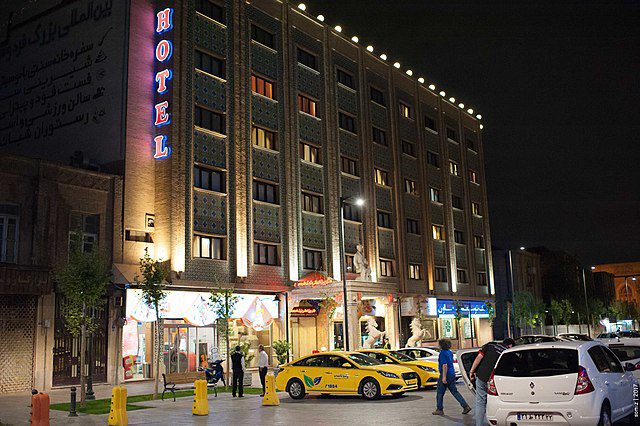
Explore the variety of places to stay near the Treasury of National Jewels in Tehran.
Saadi Hotel
If you’re looking for a comfy and affordable place, Saadi Hotel is a great pick. It’s right in the middle of lively Tehran, offering a unique and cozy stay.
Hafez Hotel
Hafez Hotel is another wallet-friendly option without skimping on comfort. Its location near the National Jewelry Museum adds extra convenience for avid explorers.
Samen Hotel
Discover the charm of Samen Hotel, a budget-friendly choice that adds to your Tehran adventure. With its closeness to cultural treasures, it’s a gateway to the city’s vibrant scene.
Elyan Hotel
Elyan Hotel, a budget-friendly spot near the National Jewelry Treasury, invites travelers to relax in its cozy atmosphere. Dive into Tehran’s culture while enjoying the comfort of this well-placed hotel.
Fars Hotel
Fars Hotel mixes affordability with comfort, creating a delightful stay for visitors. Explore Tehran’s gems, knowing you have a welcoming place to return to at Fars Hotel.
Arian Hotel
Arian Hotel, another budget-friendly option near the National Jewelry Museum, adds its unique touch to Tehran’s hospitality. Experience the city’s liveliness while enjoying the convenience of this well-located hotel.
Ferdowsi International Grand Hotel
Indulge in 4-star comfort at Ferdowsi International Grand Hotel, where style meets convenience. This upscale hotel combines class with ease, creating a comfy spot for savvy travelers.
Espinas Hotel Khalije Fars
For those seeking 5-star luxury, Espinas Hotel Khalije Fars is a lavish choice. Elevate your Tehran adventure with luxurious comfort, making your stay a standout part of your exploration.
Other Attractions Near Treasury of National Jewels
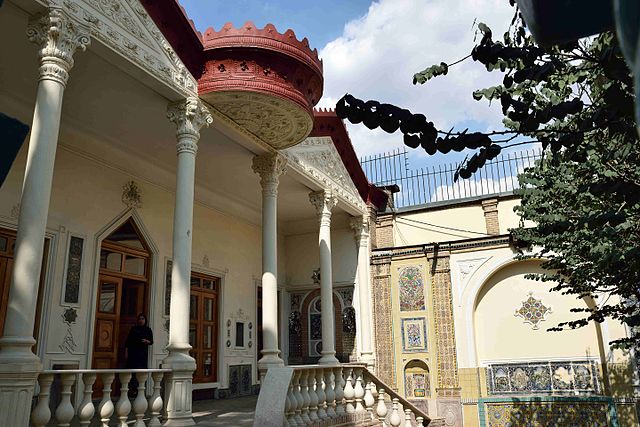
Once you’ve seen the National Jewelry Museum of Iran, there’s a bunch of other awesome stuff nearby. Take a stroll into the older parts of Tehran, and you’ll find the Golestan Palace – it’s like a super old, really important place. There’s also the Glassware and Ceramic Museum, which is great if you like art, and the Malek Museum and Library, where you can see cool old things.
Keep walking, and you’ll find the Moghadam Museum and the peaceful Negarestan Garden. The Portal of Bagh-e Meli is another neat spot with fancy architecture and a taste of history. And don’t forget the streets – Ferdowsi, Enghelab, and Valiasr – they’re like the lively chapters of Tehran’s story, with embassies from Turkey, Germany, Russia, and the United Kingdom. Plus, there are lots of cafes, shops, and markets to check out for a taste of modern Tehran.
Keep the adventure going by visiting the Ebrat Museum and the National Museum of Iran. They’re like storybooks about Tehran’s past, with each exhibit telling a different tale. It’s a journey through struggles and victories, giving you a peek into Tehran’s soul. Whether you’re into cool museums or just soaking up the city vibes, the area around the Treasury of National Jewels Tehran has a bit of everything for you to discover.
FAQs about the Treasury of National Jewels
Q1: Who owns the Iran crown jewels?
A1: The valuable Iranian crown jewels back the country’s currency and have been used for this purpose by different governments. In 1937, Reza Shah Pahlavi transferred ownership of the Imperial treasury to the state.
Q2: What is Iran’s national gemstone?
A2: In Iran, turquoise is called Firoozeh, meaning victory in Farsi. Turquoise is one of Iran’s national gemstones with a history dating back to around 6,000 BC, making it a consistently fashionable and recognizable gemstone.
Q3: Where is the Iranian crown?
A3: The crown is currently showcased alongside the other Iranian National Jewels at the Treasury of National Jewels in Tehran.
Q4: What is the most precious stone in Iran?
A4: In Iran, six precious stones—garnet, agate, turquoise, jade, pearl, and azure—are abundant. It’s noteworthy that turquoise is the most significant stone extracted in Iran.
Q5: What is the blue gemstone in Iran?
A5: Turquoise is a gemstone with an opaque, blue to green appearance, cherished and utilized by various civilizations for thousands of years. Originally known as “piruzeh” in Persian, it holds spiritual significance in Persian culture, symbolizing victory, triumph, and prosperity.
Last Words: Explore the Treasury of National Jewels Wonders with a Customized Tour
Tehran’s National Jewels Treasury is full of fancy gems from around the world. In 1937, they were used as collateral for banks and debts. In 1960, the Central Bank of Iran moved them to the Jewelry Museum in Tehran, where they are now. See cool stuff from Safavid, Afshar, Qajar, and Pahlavi times, and learn about Iran’s history.
To truly savor the richness of this cultural gem, consider indulging in the charm and exclusivity of Customized Tours. At To Iran Tour, we understand that every traveler is unique, and so are their expectations. Our mission is to go beyond the conventional, offering you an unforgettable experience that aligns seamlessly with your desires.
Choose To Iran Tour for an unparalleled exploration of Iran’s rich heritage.

